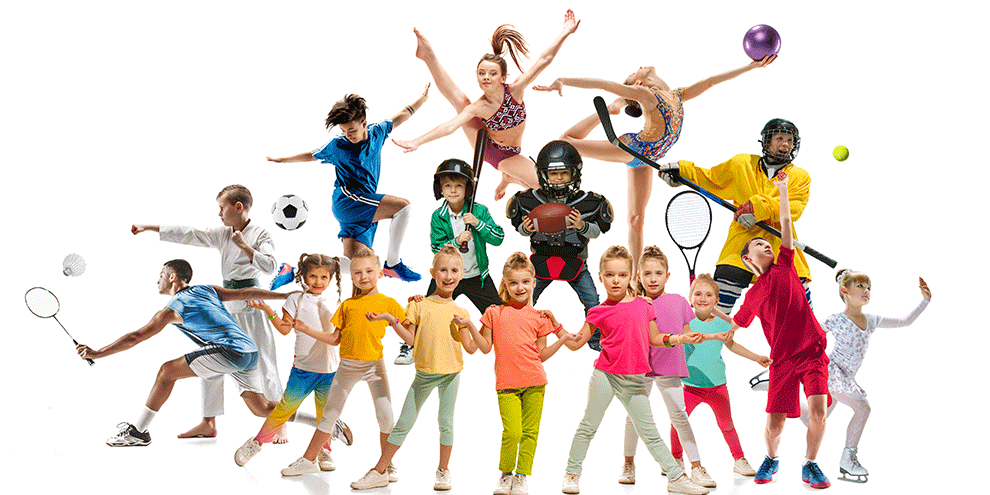Blog

What kids want from sport...
Kids want to play multi sports
The variety I am speculating about now seems to be a bit like me going to YMCA each Saturday morning. I went by bus from South Dunedin early enough to get to YM by 9:30am to spend half the time doing a gym circuit and the other half watching fractured flickers projected by an aged fractured flicker machine showing Charlie Chaplin, Buster Keaton, Casper the Friendly Ghost, Tom and Jerry and Terry Toons.
The difference is Brad, I would like to think, is participating in a varied future while my situation at YM was something to provide variety for the less able, a way of weaning them into rugby dominated recreation hopefully “in due course”.
Home in time to go to Senior Rugby to watch Dad play for Southern, usually at Carisbrook at 3 o’clock. Even time to watch the Seconds play at Bathgate Park earlier and wander down the lane beside Hillside Railway Workshops, the source of employment for many in the Southern Club.
This monopolisation by rugby in bygone eras is beginning to sound a bit strange as the game’s popularity declines.
What did Brad wanted to participate in this week? Did he want to play fullback, Number 8, prop or second five-eighth or was it hockey, lacrosse, tag rugby or netball, maybe even bowls.
Does this mean he played the same position or sport every weekend? Why this broad brush exposure? Surely he won’t make the provincial age grade team let alone the open grade national team unless he commits to one sport in a specialised position training 4 mornings a week at 7:30 am, team practice 3 days a week at 3:30 pm plus the captain’s run on the day before the game.
So the commitment is considerable, maybe it is over-commitment.
Merit selection could mean that, as time goes by, opportunities are limited. The basket of talented players will overflow and the likelihood of a less talented player being selected will be limited. However, a more balanced approach will enable time to be spread widely across a range of interests.
Living longer will spread risks into a number of pastimes and this will produce individuals who have a range of skills that interact producing multi-skilled persons. There is no longer a dead-end, which is replaced by an on-going flexibility to a ripe old age.
Some of the major sports have attempted to extend their recruitment of kids wishing to play sport at pre-teen and teenage levels but even then, the number is limited.
To the total range of sports and pastimes we can add the fine arts, painting/ drawing, dance, creative writing, music and others all creating options for individuals.
Let's create multi sport facilities
The time has come to extend the range without breaking the bank to offer wide variations, not costing too much and not taking much time.
What is needed is for representatives from each of the endeavours to meet catering for the complete range of activities. These would be located at a facility that would cater for everything so that going to one place be that indoors/outdoors/specialised venues, are multi purpose, whose use is maximised and whose staff is well qualified and paid for so that participants can attend a range of activities based on age and the time they wish to participate.
A multi-functional facility that caters for enough participants in a range of activities that gives them a range of options to try everything and anything.
The emphasis is on doing, not excelling
Doing is looked on as more important than watching and/or listening. We are developing the “total person” with emphasis on doing and not excelling. I will tend to look at rugby as it is what I know best although it does reflect the “major” sports as well. Just consider what we have got now:
- Rugby specialisation with a broad base to the pyramid with sufficient numbers to select by weight, age and, more latterly gender.
- Age grade selection enables early maturing players to dominate representative selection.
- Coaching to ensure the player is well prepared to play the game. Too often the coach is untrained, often the parent of the early maturer whose play dominates the team’s play.
- Skills, that might lead to longevity in the game, are neglected. To be fair to the parent/coach they are filling a gap. At best they should be trained for which they should be reimbursed as a reflection of the skills they have learned and which they have had reinforced by annual refresher courses.
The worst influence is the parent whose sole purpose is the promotion of their offspring. The lack of training is further inhibited by a lack of gear and equipment so that some players seldom develop the skills that will make them successful players.
Sporting participation leads to a decline in numbers at two thresholds. One when the player moves from primary school or junior club rugby to secondary school and the second when they move from secondary school to the workforce and tertiary education.
Unlike past generations the commitment from teachers to school sport is limited and, once again, the standard of coaching is low. The exceptions are the traditional rugby schools who play in elite competitions.
Frequently at these schools the sports compete with each other. As if the schedule is not enough, all are demanding their “pound of flesh” and the impact is a large reduction in playing numbers both at school and upon leaving. The major casualties are the early maturers.
Written by Lee Smith.
